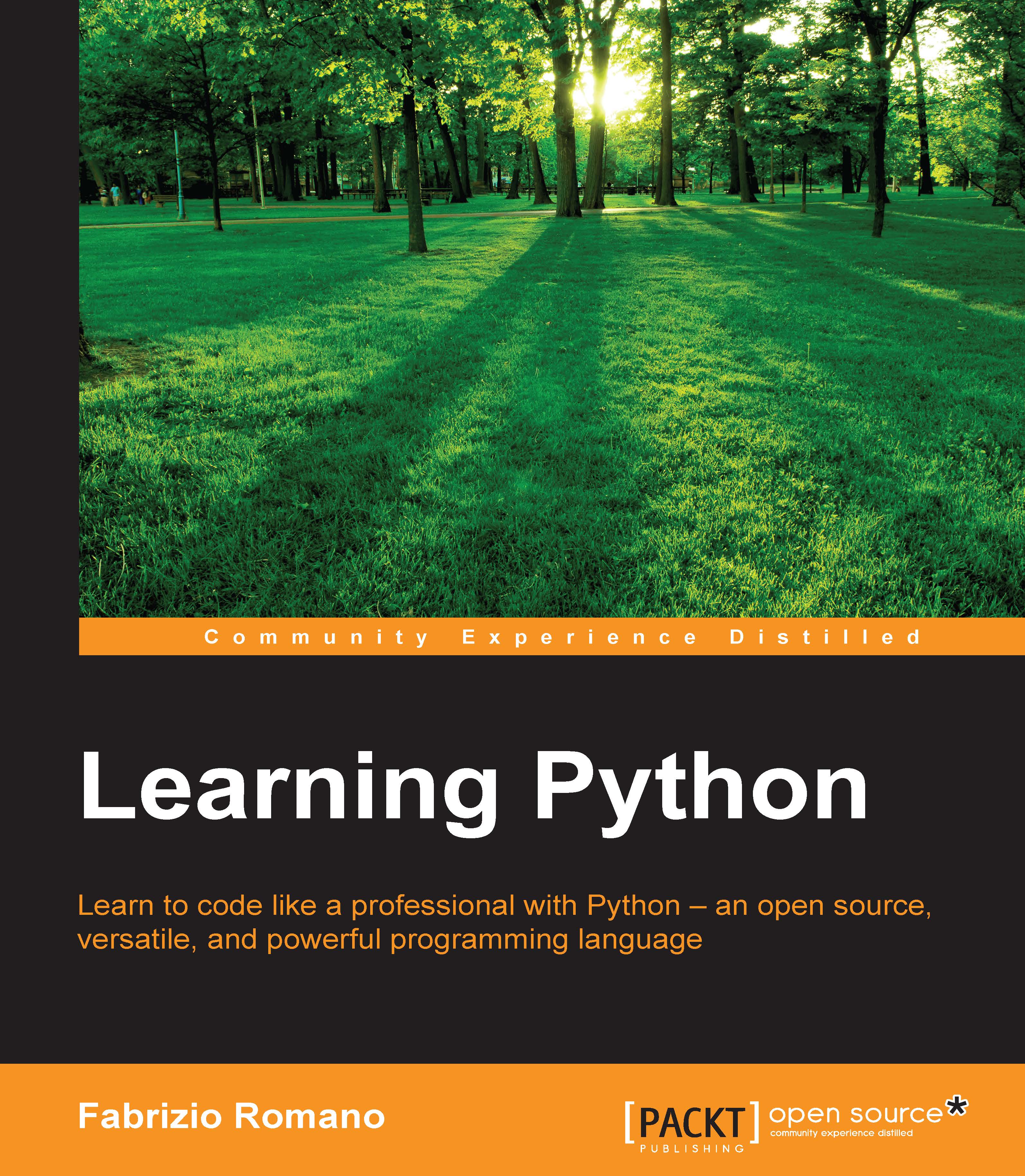-
Book Overview & Buying

-
Table Of Contents

Learning Python
By :

Learning Python
By:
Overview of this book
 Free Chapter
Free Chapter
 Sign In
Start Free Trial
Sign In
Start Free Trial

 Free Chapter
Free Chapter
"La classe non è acqua. (Class will out)" | ||
| --Italian saying | ||
I could probably write a small book about object-oriented programming (referred to as OOP henceforth) and classes. In this chapter, I'm facing the hard challenge of finding the balance between breadth and depth. There are simply too many things to tell, and there's plenty of them that would take more than this whole chapter if I described them alone in depth. Therefore, I will try to give you what I think is a good panoramic view of the fundamentals, plus a few things that may come in handy in the next chapters. Python's official documentation will help in filling the gaps.
We're going to explore three important concepts in this chapter: decorators, OOP, and iterators.
